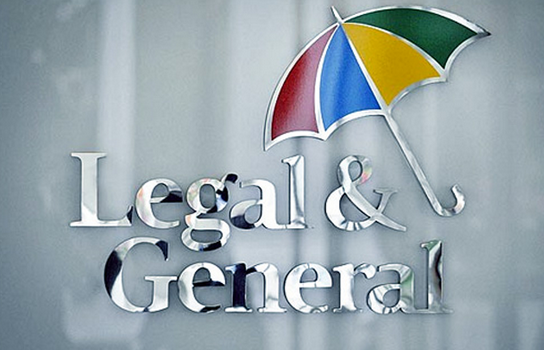Legal & General saw its UK protection operation grow to take more than a quarter of new business market in the first quarter of 2021, according to interim results for the first six months of the year.
L&G Insurance, which sells retail and group protection in the UK and retail protection in the US, saw operating profit increase 52% to £134m in the period from January to June, with UK insurance profits rising 68% to £96m and the US seeing a 22% profit uplift to £38m.
The insurer also paid £1bn in protection claims during the period and said around £80m worth of Covid-related claims had been paid out from its expected £110m provision.
It said this highlighted the significant impact of the second wave in both the UK and US over the first quarter of 2021.
UK protection business up
L&G’s UK retail protection new business rose 27% to hit £105m in the first six months of 2020, up from £83m in the same period in 2020, with retail protection gross premium income increasing 5% to £714m from £680m.
“We increased our market share to 26% in Q1 2021, up from 22% in Q1 2020, and strengthened our position as the leading provider of retail protection in the UK, delivering a point of sale decision for more than 80% of our customers,” L&G said.
It added that “further enhancements to our income protection benefit and good progress on critical illness cover attracted new customers in the first half and helped us achieve market leadership for these products.”
Group protection new business dipped 15% to £55m from £65m in January to June 2020, but the insurer said it anticipated new business volumes may not reach the record levels of 2020 as typically fewer large schemes were tendered in odd years than in even years.
However, all gross written premiums for group risk increased 12% to £274m from £245m.
“Through improved service and more refined pricing we are attracting a wider range of scheme sizes and actively dealing with more advisers in the group protection market, enabling us to gain market share and grow new business premiums,” L&G added.
L&G’s mortgage club facilitated £47bn of mortgages, up 39% from £34bn in H1 2020, driven by the buoyant housing market due to the extension of the stamp duty holiday.
The firm said it remains the largest participant in the UK intermediated mortgage market and was involved in around one in five of all UK mortgage transactions.
“Since buying a new house is often a catalyst for purchasing life insurance, the Legal & General Mortgage Club is a supporting component of our overall offering to customers,” it said.
US underwriting and technology improvements
In the US, L&G said new business annual premiums increased 5% to $59m from $56m in H1 2020 and gross written premiums rose 3% to $712m from $693m, although this was down 7% on a sterling basis.
The pound rose from being worth around $1.23 on 30 June 2020 to $1.38 a year later.
L&G said it ranked number one in the brokerage general agency channel in the first quarter by both new premium and new policies issued.
It will continue to develop its Horizon platform and said it significantly reduced usage of physical examinations from 85% of all applications at the start of 2020 to less than 50% of those put through the system currently.
“This has been achieved without a material expected impact to mortality through the use of alternative data sources,” L&G said.
“In addition, we have a range of further underwriting innovations being deployed to reduce usage of physical exams and shorten the time taken to provide an underwriting decision, which will in turn improve placement rates and so increase business volumes.”
Group profits soar
Overall, L&G saw post-tax profits almost quadruple during the period, rising from £290m during the pandemic hit first half of 2020 to £1.06bn this year.
Group chief executive Nigel Wilson said: “Thanks to the hard work and dedication of my colleagues across Legal & General, we have delivered a strong set of financial results.”
He added that the business was continuing to make investments that were economically, environmentally and socially valuable, in line with the long-term commitment to delivering inclusive capitalism.
